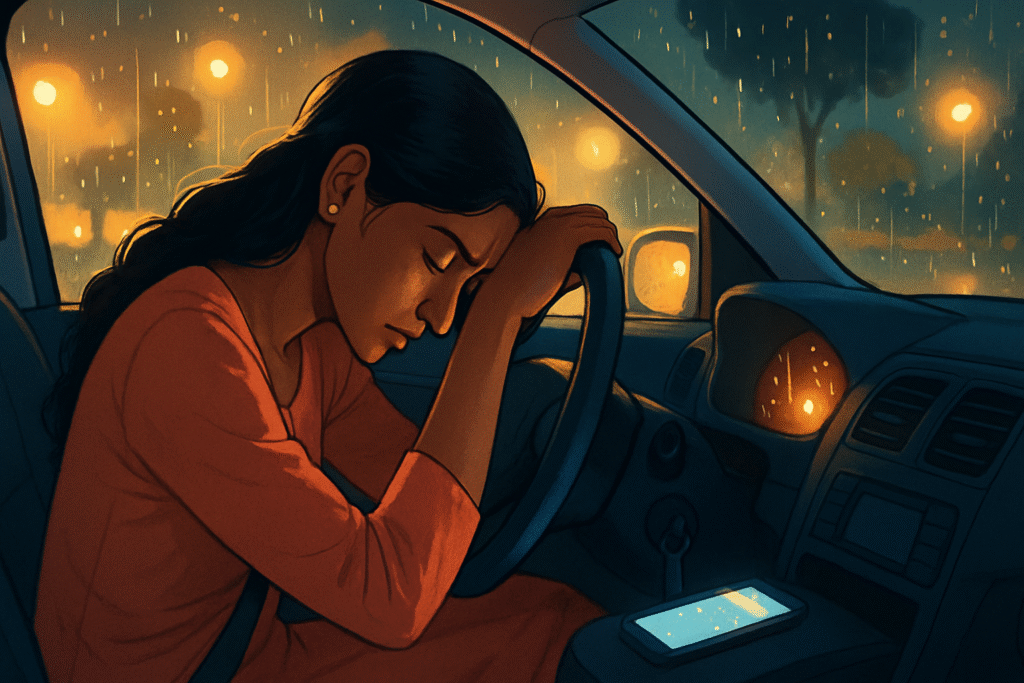Unmarried, Not Unworthy
“Not Your Daughter, Not Your Bride”
Lost in thought, I sit in the driver’s seat of my Mazda CX-5, engine off, but my head spinning. My phone buzzes relentlessly on the passenger seat — text after text lighting up the screen like an alarm I can’t shut off.

19 new messages.
“Where are you?”
“You are disowned.”
“You are an embarrassment to this family.”
“You are a disgrace.”
I don’t even flinch anymore. When you grow up hearing things like that from your own so-called loving family, it stops cutting as deep. The blade dulls. You build scar tissue.
A man I haven’t seen in years sent his parents to my house to propose marriage.
My parents said yes.
I said no.
And now I’ve been disowned.
According to them, society doesn’t accept a 27-year-old woman who’s unmarried. I don’t get it. I’m a senior lecturer at Princeton University. I earn well. I own a 3-bedroom home. I’ve built my life brick by brick without depending on them or my brothers.
But none of that matters. Because I don’t have a husband.
Apparently, that makes me incomplete.
They say I should “settle down.” That it’s time to start a family. But no one ever asks what I want. Not once have they asked why I don’t want to get married. Why the thought of being tethered to someone — especially someone like Sameer — makes my skin crawl.
They’ve never noticed what I’ve seen my whole life: the toxic couples, the screaming matches, the silent wars. Especially the two people who raised me — a living, breathing cautionary tale of what happens when you marry out of pressure and not love.
I blink and try to come back to the present. My hand’s gripping the steering wheel too tight. I force myself to loosen it.
I tell myself: just go home. Try to talk.
That was my mistake.
The second I walk into the house, I regret it.
“Don’t you have any shame?” my mother yells, storming toward me. Her voice echoes off the walls like a siren. “So, what if Sameer is a little difficult? You can fix him after marriage. Do you want to die alone? You’re already past your prime. Nobody wants an old woman. You’re ruining your future! Do you even know how hard it is to get pregnant after a certain age?”
She keeps going. And going. And going.
Sameer is homophobic. Casteist. Dismissive. Controlling. But in their minds, he’s perfect. Because he’s willing. Because he showed up. Because he comes with parents who know how to play the game.
Before I lose my mind completely, I say, “Maa, I have a meeting. I can’t talk right now.”
It’s a lie. I just need air. Silence. A moment where someone isn’t treating my life like a bargaining chip.
But even outside these walls, the questions follow me.
At the office: “How was your dinner date?”
With friends: “So, are you finally dating again?”
From well-meaning strangers: “You haven’t found someone yet? But you’re so accomplished!”
It’s never enough just to be. I always have to be becoming someone’s something.
I’m tired.
I’m exhausted.
I’m drowning in noise — family, culture, expectation — and no one’s asking if I can breathe.
So tonight, I shut them out.
I drive around until the streets go quiet and the only thing left moving is the thought that maybe I wasn’t made to fit into anyone else’s version of “acceptable.” I pass glowing windows, strangers eating dinner, kids on bikes, people who don’t know I’ve just been cast out of my family like a bad secret.
I park the car near the waterfront and rest my forehead on the steering wheel.
A single question loops in my head: Why does being single make me a failure?
Because I don’t feel like a failure.
I feel… exhausted, yes. But also proud. I worked so hard to build a life. I made it to Princeton. I bought a home. I gave myself the things my parents never dreamed of — stability, independence, quiet mornings with coffee and music.
But none of that matters to them if there’s no man sitting across the table.
They’d rather I be with Sameer — a man who thinks queerness is a disease and caste makes someone better or worse — just to be able to say she’s married.
To them, it’s not about love. It’s about appearance. Validation. Control.
And I’m done trying to fit into a frame they built without asking me for measurements.
I scroll through my contacts, my thumb hovering over my older brother’s name. The one who told me I was causing the family stress by existing unmarried.
Then I swipe past him. Past my mom. Past my dad. And finally, I open a note to myself.
I start typing, not for them, but for me.
“I’m not going to marry someone just because it keeps other people comfortable.
I’m not going to spend the rest of my life apologizing for wanting peace over partnership.
I’m not going to inherit their regret and wear it like a sari I never asked for.
I’m not broken. I’m not failing.
I’m just free.”
I hit save.
It’s not a grand declaration. It won’t undo the silence at the next family gathering or fix the crack in my grandma’s voice when she says I’m killing her.
But it’s mine.
I turn the ignition again and head back toward town — not home, not yet, but somewhere I can get a cup of coffee. Somewhere with warmth and light.
I don’t know what tomorrow will look like. I don’t know what my next move is after selling the house or how long it will take to feel safe in a new space.
But I do know this: I am not going to be guilted into silence anymore.
I will rest.
I will cry when I need to.
I will laugh again, soon.
And when someone asks, “Why aren’t you married?” I’ll smile and say:
“Because I chose myself first.”
Comment Question:
Have you ever had to choose between family expectations and your own peace of mind?
How did you handle it — or how would you?
